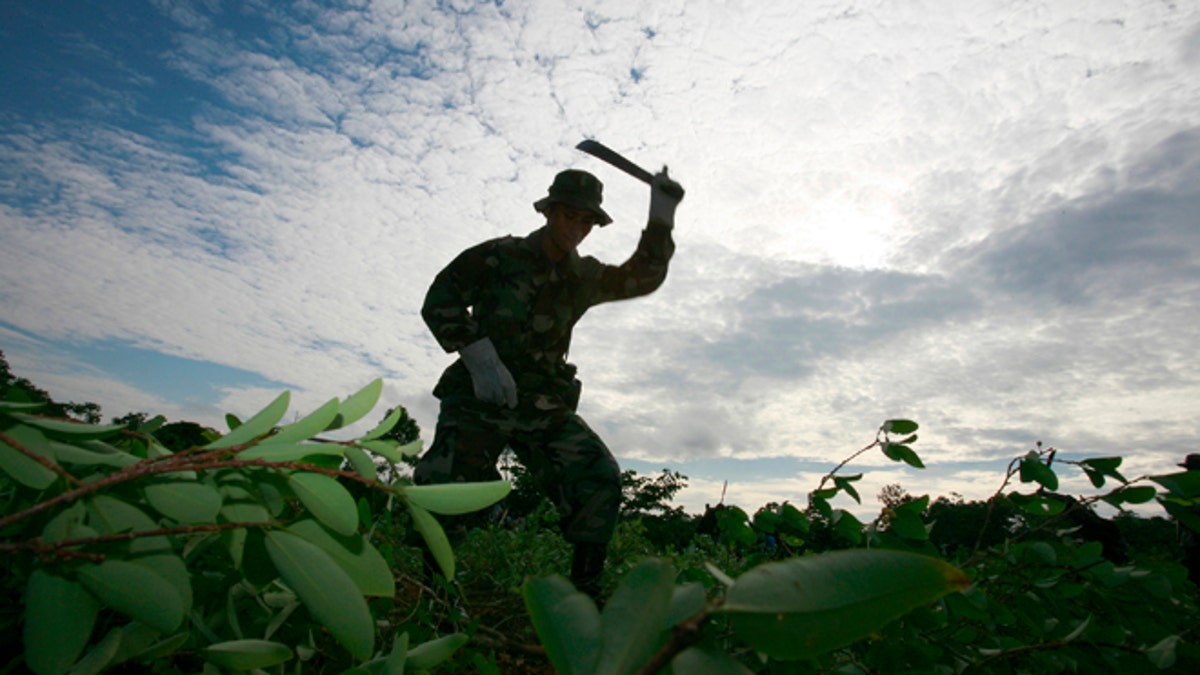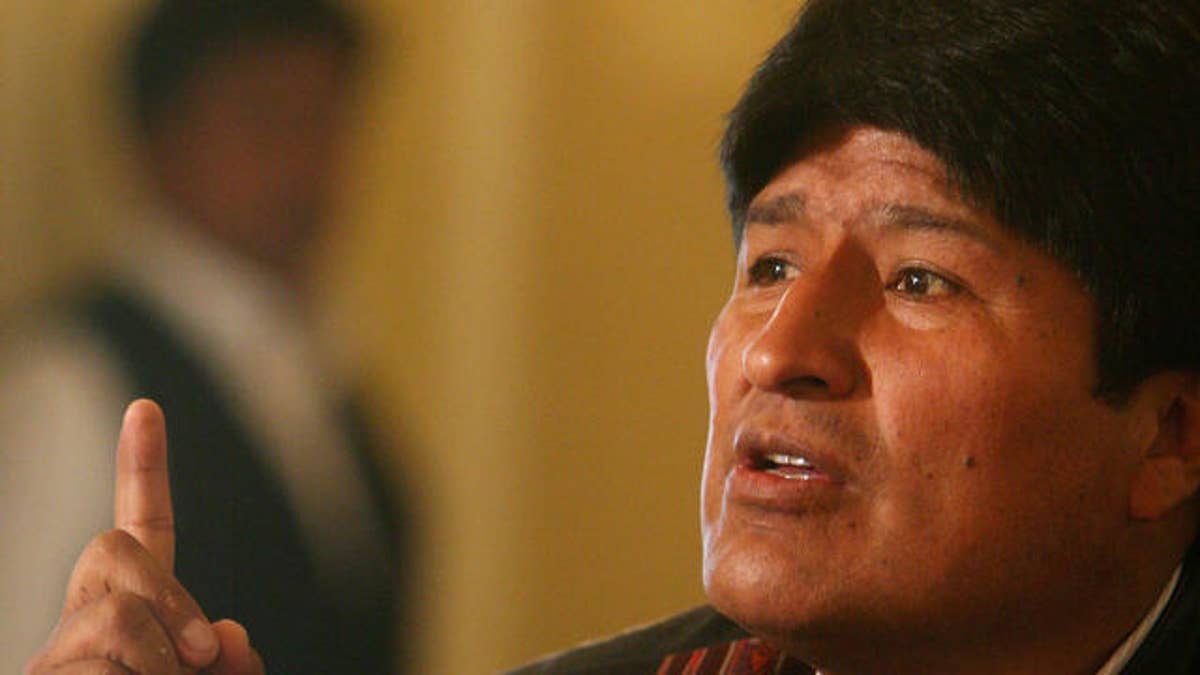
A member of Bolivian combined forces from the police and army chops down illegal coca plants near Chimore, some 373 miles southeast of La Paz. (Reuters)
Bolivia may be one of the cocaine capitals of the world – but don’t you dare call it a narco state.
The Bolivian government complained to France after a French video game publisher, Ubisoft, developed a game that highly offended the South American nation.
The popular game, "Tom Clancy's Ghost Recon Wildlands," revolves around a Mexican drug cartel that controls Bolivia and has turned the country into a violent narco-state. The game is set to be officially launched next week, but the game's beta version has already been downloaded by 6.8 million users.
Bolivian Interior Minister Carlos Romero said the Andean nation delivered a letter to the French ambassador earlier this week and asked French officials to intervene. Bolivia even threatened legal action if France did not come to its aid.
"We have the standing to do it (take legal action), but at first we prefer to go the route of diplomatic negotiation," Romero said, according to Business Insider.
Ubisoft said in a statement on Thursday that the game is "a work of fiction" and that Bolivia was chosen as the background for the game because of its "magnificent landscapes and rich culture."
"While the game's premise imagines a different reality than the one that exists in Bolivia today, we do hope that the in-game world comes close to representing the country's beautiful topography," Ubisoft said.
Bolivia has bought helicopters from France in recent years to combat the drug trade – as well as the presidential plane. It also recently announced that it will acquire radar to monitor flights of aircraft carrying drugs to nearby Brazil and Paraguay.
Romero unleashed a scathing attack on the company and questioned how a French company could criticize Bolivia’s anti-drug activities when France was the one bankrolling them.
“It would be very paradoxical for a French company to question our drug-trafficking efforts, since we are fighting [it] using French technology,” Romero said, “That's where our Super Puma helicopters and other equipment are from."

Bolivian president Evo Morales gestures during a press conference with foreign press in La Paz, Bolivia. (The Associated Press)
Bolivia is the world’s third largest producer of coca leaves – the base material in the manufacture of cocaine – behind Colombia and neighboring Peru. Bolivian President Evo Morales is the former leader of the coca growers union in the country’s Chapare province and has been a strong supporter of coca, which has been chewed for centuries in the country for its energizing properties and for helping combat the effects of high altitude.
Last week, with the support of Morales, Bolivia's Senate voted to nearly double the amount of land allotted to legal coca cultivation from 29,650 acres to 54,363 acres. The move could bring the country’s production of coca leaves up to 30,000 tons of leaves.
Morales’ support of cocoa has led to tensions with the United States and in 2008 he expelled the Drug Enforcement Administration from the country following violent confrontations that claimed 30 lives and led Morales to declare that he could no longer guarantee the safety of U.S. agents.
The U.S. State Department last year declared that Bolivia had "demonstrably failed" to live up to its international counter-narcotics commitments. A State Department spokesperson said that Bolivia had "undertaken some successful counter-narcotics activities," but added that the country has neither destroyed enough coca plants nor seized enough cocaine to live up to U.S. expectations.
Morales, however, has himself been a sharp critic of U.S. policy in the region and said he doesn’t particularly care what the U.S. thinks.
"We in Bolivia, without US military bases and without the DEA, even without the shared responsibility of drug-consuming countries, have demonstrated that it is possible to confront drug trafficking with the participation of the people," he said.
The Associated Press contributed to this report.




















